- About Us
- Columns
- Letters
- Cartoons
- The Udder Limits
- Archives
- Ezy Reading Archive
- 2024 Cud Archives
- 2023 Cud Archives
- 2022 Cud Archives
- 2021 Cud Archives
- 2020 Cud Archives
- 2015-2019
- 2010-2014
- 2004-2009
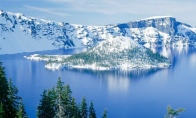 |
Cud Travel Lit: |
Whenever I set off on a trip around the globe I always try to take at least three books with me that fit into three categories: location-paired literature, ‘nerd fuel’, and ‘bar-stool literati’.
I’ve defined location-paired literature as "a piece of classic or contemporary fiction either set in, or written in” my travel destination or region. Nerd fuel is "source of knowledge” literature. Books about my destination. Bar stool literati, finally, is ‘just for fun’ lit that I’ll take along for the trip.
Here are some location-paired and ‘nerd fuel’ books I read in recent travels to Alaska and Montreal, Canada.
A book set in Alaska- Jack London’s Burning Daylight
The titular character is a strong and relentless man of action from the egalitarian Klondike frontier. After striking it rich in the Alaskan Gold Rush, Daylight he leaves the North to try his hand at business in San Francisco and New York.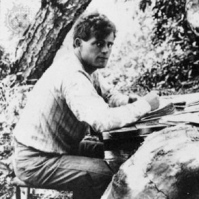 His trust and faith in others is quickly interpreted in the city as naivety, and he is swindled and cheated out of most of his fortune. Daylight soon adapts, however, and becomes an economic force to be reckoned with as he single handedly plans and develops an entire city. But as the gravity of ruthless behavior takes its toll on his mind and body, Daylight questions which has more value: the solace of humble country living, or the stress of influential city life.
His trust and faith in others is quickly interpreted in the city as naivety, and he is swindled and cheated out of most of his fortune. Daylight soon adapts, however, and becomes an economic force to be reckoned with as he single handedly plans and develops an entire city. But as the gravity of ruthless behavior takes its toll on his mind and body, Daylight questions which has more value: the solace of humble country living, or the stress of influential city life.
Though Jack London is a powerhouse of American fiction, as always, bear in mind that books written, in this case, one hundred years ago may not mesh with today’s views on race and gender. But should these controversial themes and terms be removed from literature, as in the movement to retroactively censure Mark Twain’s writing? I think not. It destroys the essential quality of realistic characters in literature.
After all, the authors aren’t saying these things, their believable characters are.
A book about Alaska- Riki Ott’s Not One Drop
Ott is a marine scientist and former Alaskan “fisherm’am” based in Cordova, Alaska, in Prince William Sound.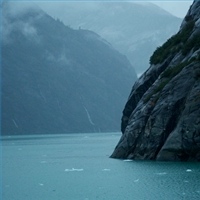 She experienced firsthand the crude-oil spill of the Exxon Valdez in 1989 and was at the forefront of the town and the fishing industry’s decades-long battle against corporate behemoth Exxon and its campaign of misinformation. This is a chilling exposé on the cozy relationship between corporations and the government. I can recommend no better location to read this book than at the dead end of the Gravina Island Highway, where Ketchikan’s so-called Bridge to Nowhere was abandoned.
She experienced firsthand the crude-oil spill of the Exxon Valdez in 1989 and was at the forefront of the town and the fishing industry’s decades-long battle against corporate behemoth Exxon and its campaign of misinformation. This is a chilling exposé on the cozy relationship between corporations and the government. I can recommend no better location to read this book than at the dead end of the Gravina Island Highway, where Ketchikan’s so-called Bridge to Nowhere was abandoned.
Not an easy place to reach, though, so anywhere you want to gain an informed, credible, rational insight into the goings on of corporate-caused disasters will do. One of Ott’s main messages is that, as corporations become juggernauts of profit, they acquire greater and greater access to and influence over government officials and organizations.
In the absence of a voice from the people (who have rights), government will get its justification from corporations (which have money and rights).
A book set in Montreal- Nicolas Dickner’s Nikolski (Translated into English by Lazer Lederhendler.) 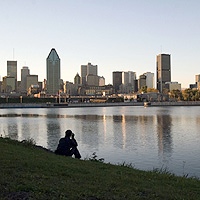
Three young Canadians in Montreal pass in and out of each other’s lives without knowing how close to each other they really are. Joyce grew up in the remote North Shore region of Quebec, immersed in her grandfather’s stories of their family’s buccaneering past, like her uncle Jonas who roamed the seas before landing in far-off Nikolski, Alaska. When Joyce reads a newspaper story about a woman bearing her family name being arrested for Internet piracy, she sets sail for Montreal.
Noah grew up with his mother as a modern nomad, towing their home throughout vast central Canada. Noah’s only connection to the outside world are the letters sporadically exchanged with the father he never met, using a rough system of currents and seasons to pick general delivery addresses where his equally nomadic father might be. After a long silence following a letter from remote Nikolski, Alaska, Noah heads to Montreal alone to live on solid ground for the first time. Joyce and Noah both find reasons to enter a Montreal bookshop, where the unnamed narrator holds on to the only memento of her father she has ever had—a cheap, plastic compass that inexplicably points not to north, but straight from Montreal to a dot on the map labeled Nikolski, Alaska.
A book about Montreal- Sean Mills’ The Empire Within
A detailed study on the radicalism of Quebec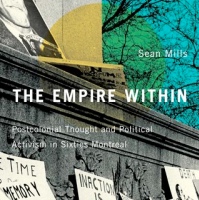 and Montreal in the 1960’s and early 70’s.
and Montreal in the 1960’s and early 70’s.
In the decades after World War II, the powers of European imperialism and colonization receded and nations from Asia to the Caribbean gained their independence. But in the Sixties, the streets of Montreal emerged as an unlikely scene for cries of decolonization. Montreal’s Francophone majority imagined itself a victim of the global scheme of colonization and exploitation, citing the Anglophone minority’s firm hold on wealth, real estate, and power in the city.
The decade that followed was nothing if not radical—Montreal’s Natives, Blacks, and women at first cried foul; immigrants fought for the right to learn universal English instead of argot French; civil liberties were suspended city-wide for more than six months; and Montrealers of all persuasions took to the streets in protest against and solidarity with everyone from their own leaders to the Vietnamese. Tensions peaked in October 1970 when two officials were abducted—one was killed—by a Quebec organization that fashioned itself as paramilitary and pro-independence, but history has judged as terroristic.
Despite these events occurring in living memory, or perhaps because of it, Montreal today is a vibrant and cosmopolitan city, staunchly multicultural and multilingual.
To read more about Brian Spigel’s travels visit http://agrandadventureandnotapennymore.com
